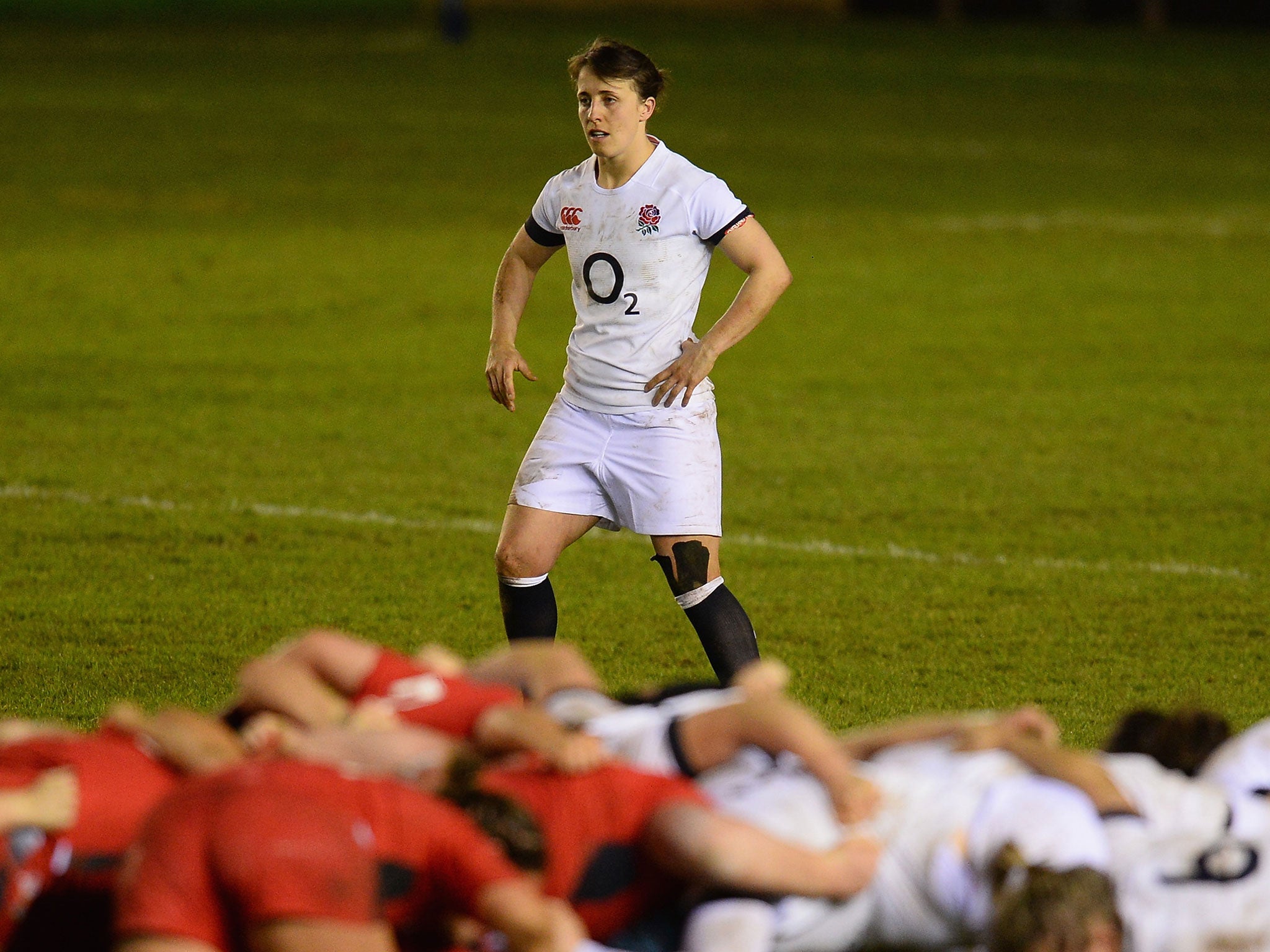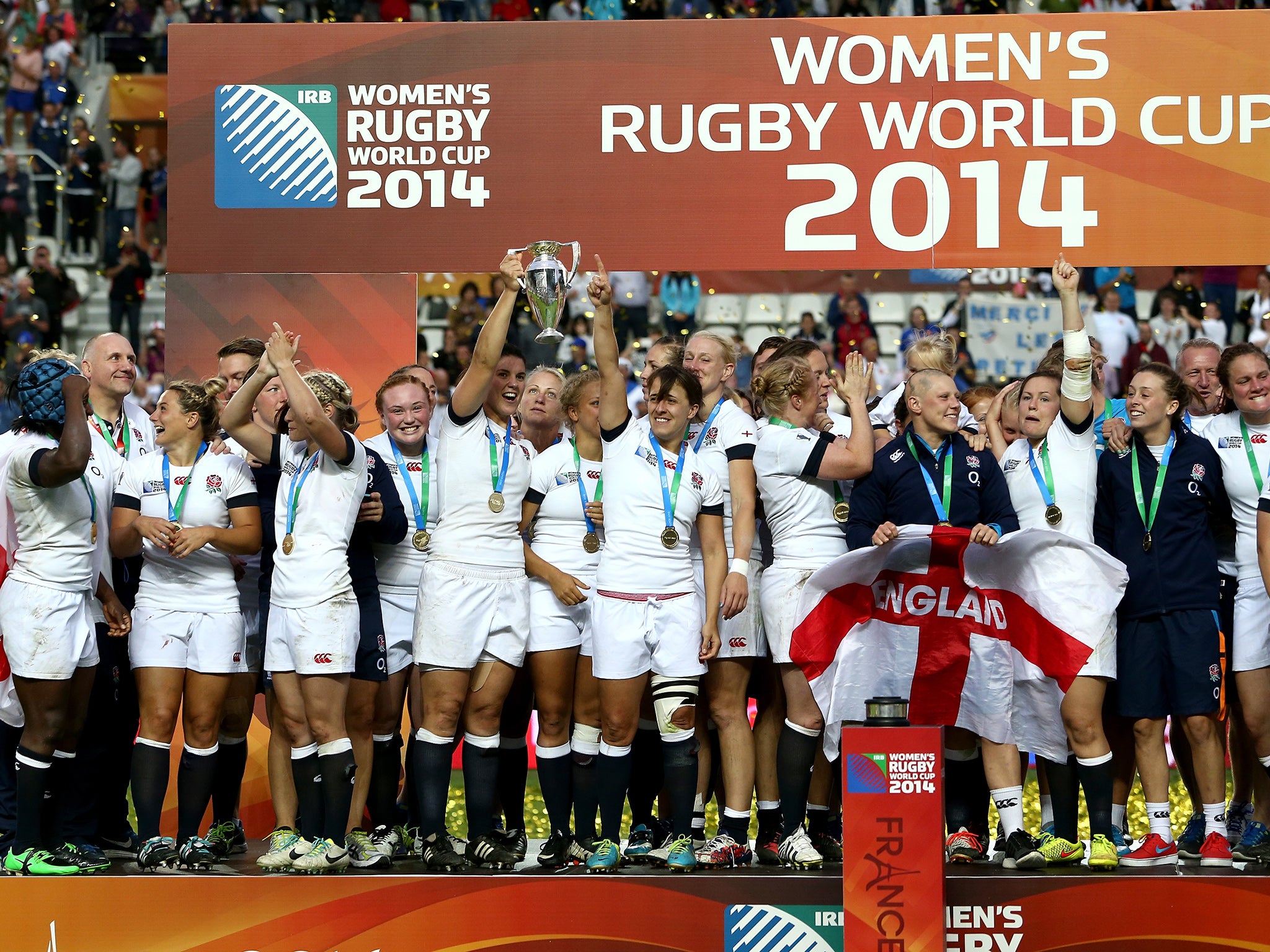Katy Mclean: ‘I’m a professional – that still takes getting used to’
When England’s World Cup-winning captain started playing, people would tell her to get off the pitch. Now the ex-teacher has gone full-time as a player, she tells Matt Majendie, and Rio 2016 is next on her list

Your support helps us to tell the story
From reproductive rights to climate change to Big Tech, The Independent is on the ground when the story is developing. Whether it's investigating the financials of Elon Musk's pro-Trump PAC or producing our latest documentary, 'The A Word', which shines a light on the American women fighting for reproductive rights, we know how important it is to parse out the facts from the messaging.
At such a critical moment in US history, we need reporters on the ground. Your donation allows us to keep sending journalists to speak to both sides of the story.
The Independent is trusted by Americans across the entire political spectrum. And unlike many other quality news outlets, we choose not to lock Americans out of our reporting and analysis with paywalls. We believe quality journalism should be available to everyone, paid for by those who can afford it.
Your support makes all the difference.“Girls don’t play rugby,” they used to say. It’s just that Katy Mclean chose not to listen.
England’s rugby captain cannot remember her exact age when she first heard parents on the sidelines questioning her place on the rugby pitch but even now she remembers, “some of it was really cruel”.
Her team-mates, though, saw her no differently. Aged five to 12, she played against boys of her own age. “The boys noticed I was a girl but they didn’t care and they didn’t hold back,” she says.
Playing rugby was a dad and Katy thing. Her father David relished the game, still does, while mum Catherine was the organiser, the washer of clothes, the packer of kit, ensuring that the pair were ready to play on Sunday afternoons.

“I’m sure my mum was disappointed her eldest daughter was always covered in mud on a Sunday afternoon while other girls were playing with Barbies,” she said.
That may have been the case but her parents have been continual supporters from day one and the detractors, who she admits “made me more determined to play”, were once and for all silenced on 17 August of this year as Mclean lifted the Women’s Rugby World Cup.
It wasn’t so long ago that women’s rugby struggled for even the barest of column inches but the triumph was on the back pages of every national newspaper and even on the front of some. Since then, visits to No 10 Downing Street and appearances on A Question of Sport have followed.
But while England’s players were paraded around the streets of London on an open-top bus, Mclean returned to her classroom at Bexhill Academy in Town End Farm, Sunderland.
Life, though, has changed immeasurably for her in the intervening four months. If asked in the past what she did for a living, she would say “primary school teacher”. Now she is no longer Miss Mclean, her job explanation thus: “Now, it’s professional rugby player and that still sounds odd, it takes some getting used to.”

Mclean is in the first batch of 12 female players to warrant contracts from the Rugby Football Union with a view to the next Olympics and the prospect of the team targeting gold in the Rio sevens.
The 28-year-old fly-half admits it was a tear-jerking decision to give up a job she loved, to leave a classroom of children she revelled in teaching. But for all that, it was essentially an easy decision.
“I so loved that part of my life but deep down I knew this was what I wanted to do and I just couldn’t turn it down. How often do you get the opportunity to aspire to be at an Olympics? I can always go back to school and I genuinely think I’ll go back to teaching but this is just two years of my life doing what I want to do.”
The upheaval has been a big one. She has swapped South Shields for Godalming and a house share with team-mates Emily Scarratt and Natasha Brennan, and the manic life to which she has grown accustomed was instantly flipped.
During term time she used to be in the gym at 6am, then straight to the classroom, finish work around 5.30 before heading to the gym once more, getting home at half past eight, having something to eat and then collapsing in a heap.
Now, work begins with a 7.45am weights session, followed by recovery time, lunch, a team meeting and a rugby session, with the day wrapped up by 4.30pm.
Of the new life she says: “There’s a lot more free time so I waste more time. My time management’s gone to pieces. And it takes some adapting to. The change is getting that recovery time but also the intensity of training. There are some days you might actually have time but you’re so shattered you have the energy for some food and then you’re in a slump.”
All of it is building towards a few days in Rio de Janeiro, where England will need to upset the apple cart, namely red-hot favourites New Zealand, to have any hope of aspiring for gold. But Mclean, having toppled the world once already, believes it is doable.
The World Cup was a tournament England’s captain and playmaker was in danger of missing almost altogether after a knee injury in the opener against Samoa.
It set off a panic inside her that a nearly two-decade-old dream was about to be prematurely crushed. “I remember being nine and waiting to win the World Cup,” she says. “I remember shouting at the physio, ‘stay away from me’. But an injury that should have taken six weeks to recover from, I was back playing in nine days for the final.”
It may have only been a 20-minute cameo in that last match but what a final it proved to be for England, coming away with a 21-9 victory over Canada.
Was there a particular moment when it dawned on her that her dream was being realised? “There were four or five minutes left but I realised they didn’t have enough time to score that many points,” she recalls.
“Claire Allan was waiting for a call but in my head it was just ‘oh my God, we’ve won the World Cup’. You think about winning something like that but you never truly prepare for the moment when it actually happens.”
Following the horror of being a losing finalist in 2010 – after which she took over as England captain for a full World Cup cycle – the first sensation was relief. “The thought was, ‘we’re not going to be the team that nearly won the World Cup but never did’.”
It is undeniably the peak of women’s rugby history in this country, particularly for a captain who “wasn’t aware of any women rugby players when she took up the game”, so instead idolised Jonny Wilkinson.
“So it’s phenomenal to be a part of it and, more broadly, of women’s sport,” says Mclean. “I think London 2012 made the big difference, women’s sport suddenly kicked on. Women’s sport is finally being taken seriously.”
It is a far cry from those first days on the rugby field, from those early doubters.
--
Katy Mclean led England to World Cup glory on 17 August against Canada in Paris. Chris Hewett was there and reported the triumph for The Independent:
“They had been hurting for 20 years, largely from pain inflicted by battalions of cold-eyed furies from All Black country across four World Cup cycles, so when England’s women finally reclaimed the global title by beating the devil-may-care counter-attackers from Canada in Paris on Sunday night, the explosion of joy was comfortably matched by the surge of relief.
A smartly constructed first-half try from the Bristol full-back Danielle Waterman – precisely the kind of score her father Jim, a resident member of Bath’s pantheon of No 15s, might have bagged for himself – and a solo crossing from the goal-kicking Lichfield centre Emily Scarratt deep in the final quarter were the scores that counted.”
Join our commenting forum
Join thought-provoking conversations, follow other Independent readers and see their replies
Comments